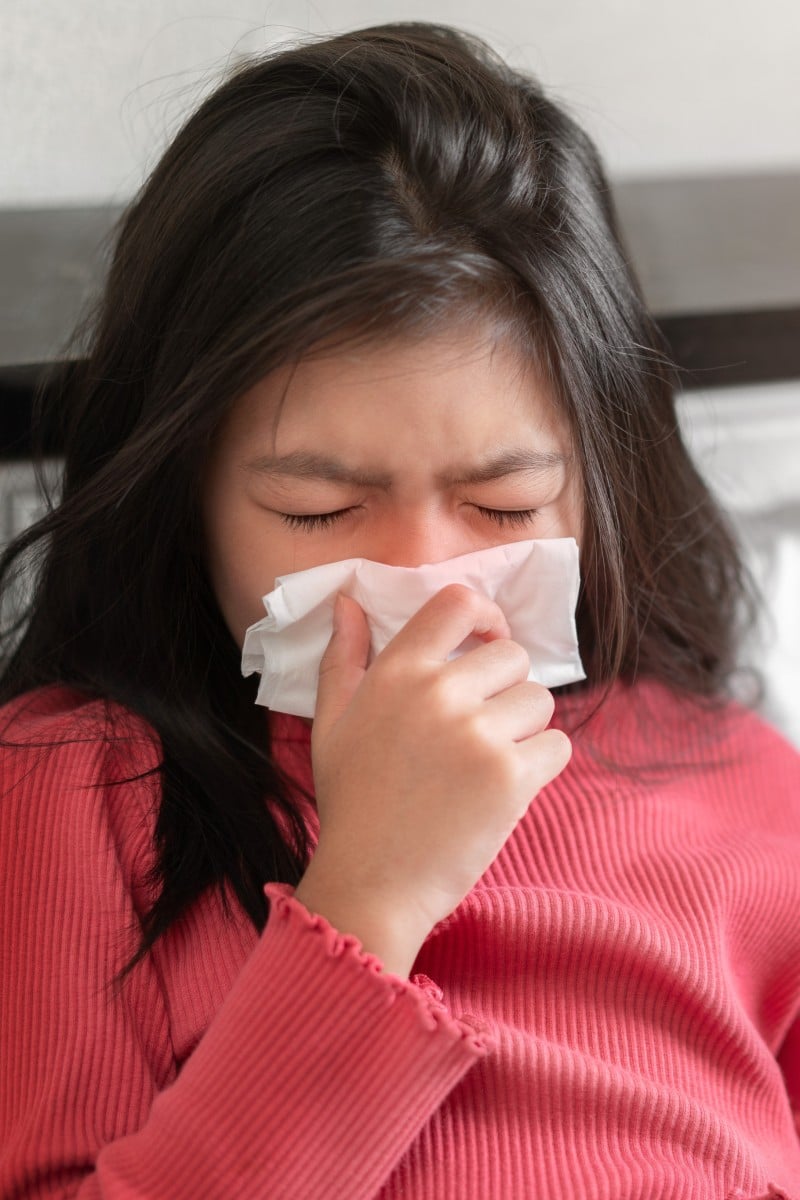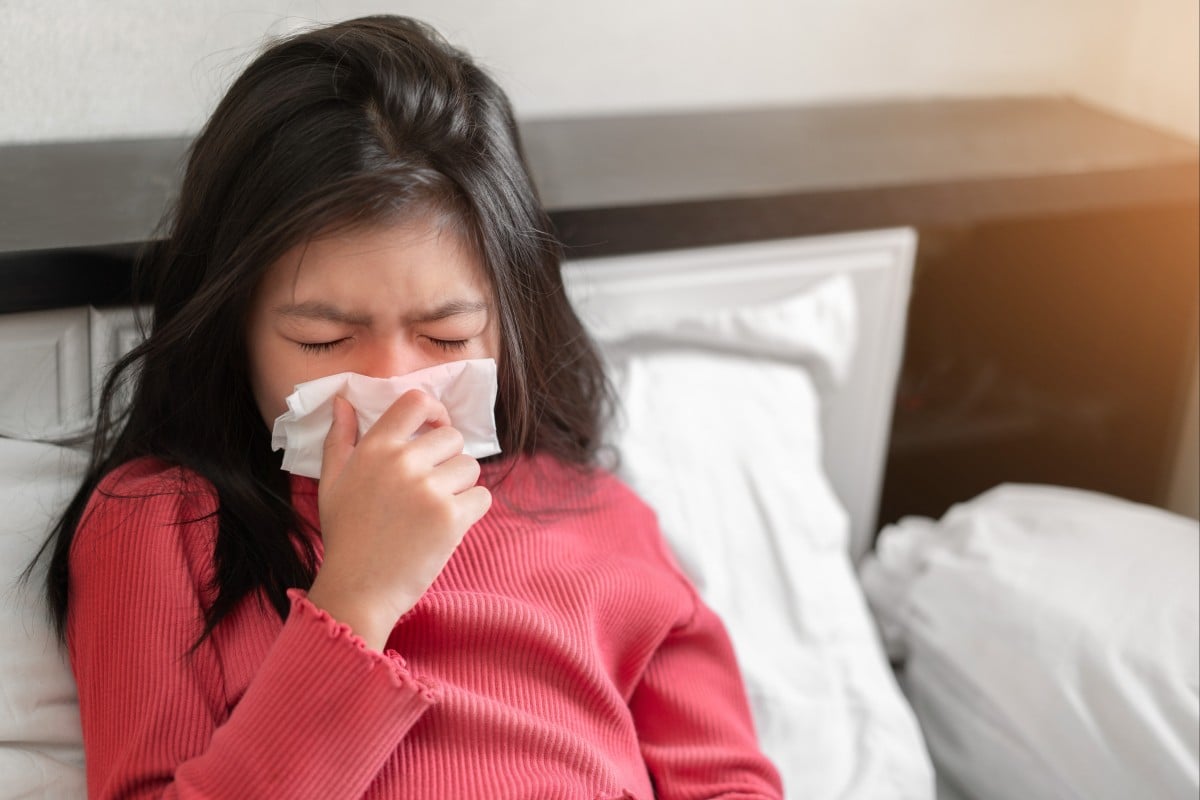
- Fears rise after 6-year-old girl dies; experts say a low vaccination rate may make it easy for certain strains of the influenza virus to dominate
- About 50 per cent of the city’s population had been inoculated with the latest seasonal flu vaccine
 Low herd immunity in Hong Kong may prolong flu season, experts warn after a six-year-old girl dies. Photo: Shutterstock
Low herd immunity in Hong Kong may prolong flu season, experts warn after a six-year-old girl dies. Photo: Shutterstock Hong Kong may be facing a prolonged flu season as a low vaccination rate might have led to weak herd immunity, letting a different strain of the virus dominate, medical experts have said after health authorities sounded a warning.
The Centre for Health Protection drew attention to the possibility of a longer influenza season on Thursday evening after it revealed a six-year-old girl became the second child to die from the flu this year.
The centre said that the city’s dominating flu virus strain had shifted from influenza A subtype H3 seen in the January to March period to subtype H1 recorded in the most recent cases.
“The duration [of the flu season] would be prolonged when there is a transition of the dominating virus strain,” the centre said. “It is believed that the current influenza season will persist for a period of time and more outbreaks and severe cases might be recorded in the upcoming weeks.”
While the city entered the current flu season in early January this year, the extension meant that it would last longer than the average flu period of eight to 12 weeks.
Dr Mike Kwan Yat-wah, an honorary associate professor at the University of Hong Kong’s department of paediatrics and adolescent medicine, said a relatively low vaccination rate could give rise to alternating flu strains.
Should Hong Kong require wearing masks during flu season?
He said about 50 per cent of the city’s population had been inoculated with the latest seasonal flu vaccine.
“If we need to build an immunity barrier to prevent infections of alternating viruses, an overall vaccination rate would need to reach 70 to 80 per cent to do so,” Kwan said.
He added that as the city experienced a peak of H1 infections starting from March last year, the immunity against the virus subtype would decline roughly six months later, suggesting that people could also be more susceptible to the strain.
The flu is coming; here’s what you should know to protect yourself
“When the population’s immunity is low, the flu season could be longer … we could see a majority of people getting infected before the transmission stops,” he said.
Kwan added there was no significant difference in terms of transmissibility or virulence between H1 and H3.
Professor Ivan Hung Fan-ngai, an infectious disease expert from the same university, pointed out it was “quite common” to have two different flu virus strains in one season, especially when community immunity was low after Covid-19.
He said the low immunity was caused by a lack of thorough flu infections in the community during Covid-19 pandemic, together with the low flu vaccination rate.
Health authorities said Hong Kong underwent a 16-week winter flu season in 2015-16 after the dominance of flu A virus was overtaken by flu B later.
The six-year-old girl died this week after having contracted the H1 subtype virus and developing encephalopathy, also known as altered brain function.
The flu is coming; here’s what you should know to protect yourself
The girl had a history of good health and had received a flu vaccine for this season, authorities said.
The news came just five days after the announcement of the death of an unvaccinated eight-year-old girl, who had also caught the H1 strain.
Kwan explained that a person could still develop complications following a flu jab under certain conditions, such as undiagnosed congenital immunodeficiency or metabolic disorders, a severe flu infection or another bacterial infection.
Health authorities said there had already been a “significant increase” in the number of flu-like outbreaks at schools and institutions in the week ending April 20 compared with the first week of the month, rising from 10 to 29.
“The [centre] appealed again to members of the public to heighten their vigilance, and people belonging to high-risk priority groups should receive seasonal influenza vaccination as soon as possible for prevention of severe disease and death.”